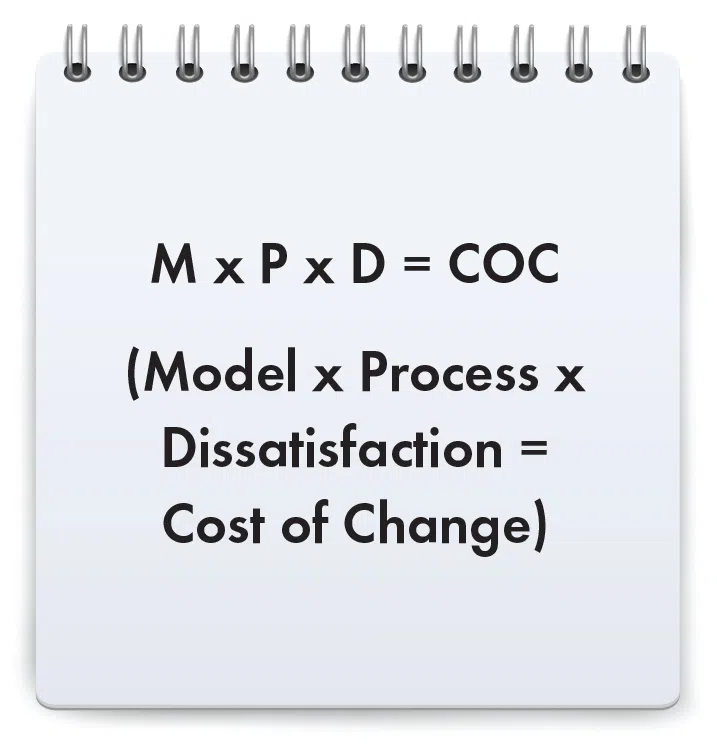From small to medium to large to huge: Which are you, and which do you wish to be?
When I founded my first air conditioning and heating company in 1965, it would have been classified as a small company. In fact, it could not have been any smaller: I was it! The company had no other co-workers. Also, I had no customers and a whopping “borrowed” $500 to work with. That meant I answered the phone or checked with the answering service, made sales presentations, ordered material and equipment, installed jobs, ran service calls, collected money, paid bills, and took out the trash. Eventually, I hired my first co-worker, who helped to install jobs and complete other tasks. Revenues the first year were $85,000. Certainly, a small company.
The first few years the company grew slowly, and I really struggled in many ways: trying to get everything taken care of properly both in the office and out in the field, dealing with financial concerns, hiring and disciplining co-workers, and handling customer relations and retention. I worked all of the time. It was not easy, but the company grew in four years from a small company to a medium-sized company with revenues of $1.25 million.
In another five years, it was a large company with revenues of $8 million.
Six years later, it was a huge company reporting revenues of $15 million. To put this into perspective, in today’s dollars (accounting for both inflation and today’s more expensive, higher-efficiency equipment), my company would be about a $40-million company.
Here is the question: As the founder, owner, and general manager of a company that progressed through the entire evolutionary process of small to medium to large to huge, which size company was the easiest to operate? The answer is: huge. That is why I have a high degree of empathy for small-company owners and why I have always done everything possible to help them grow and prosper. In fact, I maintain that if you have not been a small contractor, you cannot possibly understand their many struggles.
In some ways, operating a mediumsized company is even more difficult. In a small company, you do almost all of the work, and you alone are in complete control. In a medium-sized company you begin to tell others (managers or leaders) what to do, which is at first frightening because you feel that you are losing control. Also, you are caught in a competitive vise. On one side of the vise are small companies that are very difficult to compete with both on price and response. On the other side of the vise are the large and huge companies that have many resources — including cash. They can simply outspend you if they wish.
In a large company, you begin to tell others (key managers or leaders) to tell others (managers or leaders) what to do. You become more distant from the action in the field. The organization becomes more complex. An owner who wishes to exercise a lot of control cannot operate in this environment. A huge company is much more complex than a large company.
Very few people in our industry have progressed through the entire contractor evolution from small to huge. I feel very privileged to be one who has. However, I feel it is important to say that there is nothing wrong with running a small or medium-sized hvacr company. If that is your goal and how you are most satisfied, that is exactly what you should do.
In my particular case, I wanted from the very beginning to own and manage a huge company. How did I accomplish my goal? Here are the elements that I believe led to our success:
1. I was always committed to growing the company, from the day I quit my previous job and founded it. I wrote down the goal and still have the note. It ends with these words: “...to be one of the largest contractors in the state of Florida.”
2. I made a lot of mistakes, but I learned from every one of them and tried not to repeat them.
3. I was never fearful of hiring people smarter than I in their particular role. I surrounded myself with highly competent people and learned from them. I also allowed them to manage their pieces of the business and rarely interfered.
4. We always had an ongoing, highly structured training program.
5. We were not afraid to step out and try something new or even revolutionary in the industry.
6. We were very customer focused and practiced customer relations long before it became fashionable to do so.
7. We were marketing driven, with all co-workers somehow involved in the sales process. Combining elements No. 6 and No. 7 made us a customer-focused, marketing-driven company.
8. We were willing to discipline when appropriate. When you fail to discipline for non-performance, your organization’s standards will decline — always.
9. We treated our suppliers and vendors with respect.
10. We were good community citizens and were well known in our market area.
11. We developed and implemented processes and systems (a failure of many companies).
12. And lastly, we had lots of fun and celebrated successes.
The bigger my company grew, from small to huge, the more I enjoyed my job and the easier it got for me!
This article is not intended to be a story about Ron Smith. That is not important. My intention is to furnish information and inspire those who wish to grow their contracting companies, while at the same time recognize those who do not have the same objectives.
Ron Smith is a well-known leading, authority in the hvac industry. His new book has been released: HVAC Spells Wealth (How to Build and Manage a Highly Successful HVAC Residential Retail Business and Dominate Your Market). Books can be ordered at www.hvacrbusiness.com or www. ronsmithhvac.com or call 615-791-8474.



.webp)
